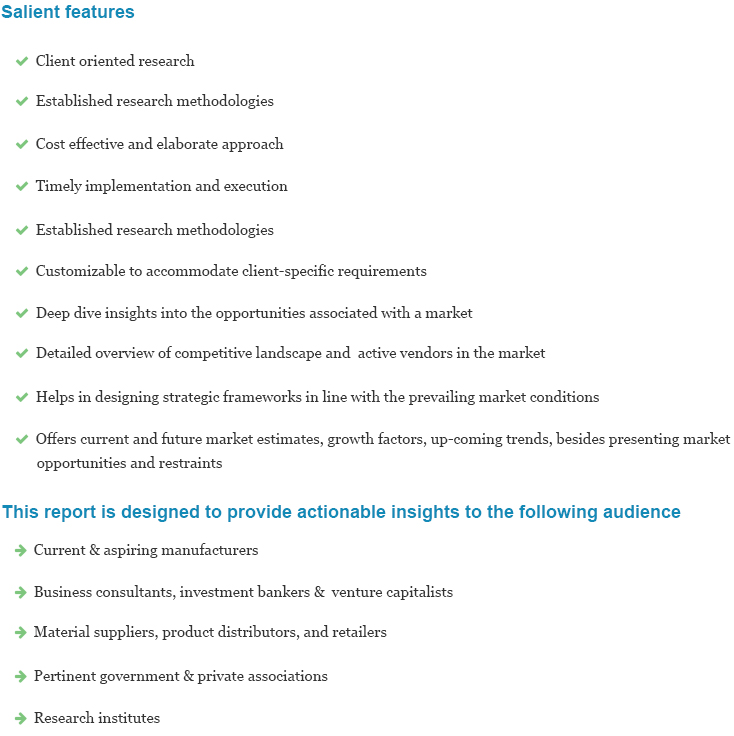
Coffee Market Size, Share, Analysis, Competitive Strategies and Segments Forecasts, 2015 To 2025
- Published: December, 2018
- Format: Electronic (PDF)
- Number of pages: 70
- Industry: Food & Beverages
Emerging as perhaps the most consumed beverage in developed countries and the most widely produced beverage in developing nations, the global coffee market has witnessed steady growth over the years and will continue doing so throughout the forecast period. Growing population around the world, rise in disposable income, availability of a wide range of products at varied prices, and strong production, distribution, and promotional activities by vendors are some of the leading factors driving the global market.
The millennial population, which forms a major target audience for most market participants, is highly influential as well as experimental when it comes to new tastes and trends. According to the U.S. National Coffee Association, an estimated 44.0% of the coffee demand in the country stems from millennials. Between 2008 and 2016, daily consumption rose from 51.0% to 60.0% among 25 to 39 year olds, while among people between the ages of 18 and 24, consumption went up from 34.0% to 48.0%.
The millennials’ presence on social media, coupled with a surge in establishment of cafes and restaurants, has had a significant impact on the coffee industry. To suit their evolving tastes, vendors have been introducing unique, high-quality, customized, and specialized products with new aromas and flavors. Be it instant, roasted and ground, ready to drink, boiled, infused, iced, or black–coffee is available in a host of varieties today.
The trend of organic coffee can be credited to the millennials too, one that has taken the market by storm, riding on the wave of growing health consciousness among consumers. The general notion is that the organic variant of the product is healthier than the regular kind as it is free of pesticides, herbicides, synthetic fertilizers, preservatives, and artificial colors and flavors. As an increasing percentage of the millennial population focuses on a healthier lifestyle and diet, specialized and organic coffee has gained much traction.
Another factor that boosts this trend is rising disposable income of the target group as well as their willingness to spend on premium and high-quality products. Introduction of private labels has also spurred this product segment. Greater spending on production, advertising, and promotion by these private labels, along with lower prices compared to branded products, is positively impacting consumer demand for the same.
The global market is extremely fragmented, owing to extensive presence of both large and small vendors. Moreover, vendors offering numerous product varieties are increasing with growing consumer demand. Market players have been adapting to rapid technological changes in terms of production and packaging, focusing on making the most of evolving trends. Product innovation has also played a crucial role in swaying public demand and preference. Some of the more prominent players in the market are Ajinomoto General Foods, Inc.; Eight O’ Clock Coffee; Jacobs Douwe Egberts; Kraft Heinz Inc.; Nestle S.A.; Starbucks Corporation; Dunkin’ Donuts; The J. M. Smucker Company; and Keurig Green Mountain.
Vendors compete on a number of factors, such as quality, price, promotion, product differentiation, and distribution. Considering the intensity of competition in the market, players are also compelled to resort to various strategic collaborations. For instance, in September 2017, Dunkin’ Brands teamed up with The Coca-Cola Company to introduce a new line of cold coffee beverages.
The bottled iced coffees were manufactured, distributed, and sold by Coca-Cola and were available at convenience stores, grocery outlets, and Dunkin’ Donuts restaurants. With this foray into the ready-to-drink (RTD) coffee segment, the Dunkin’ Brands Group aimed to give U.S. market leader Starbucks a run for its money. According to Fortune, the industry giant controls an estimated 97.0% of the RTD coffee market in U.S., in a 50/50 partnership with PepsiCo.
Acquisitions are another go-to strategy for companies looking to expand their footprint or product portfolio. One of the best examples of this expansion strategy is coffee conglomerate JAB Holding. Its acquisition spree began in July 2012, with Peet’s Coffee and Tea, followed by Minnesota’s Caribou Coffee six months later. In 2014, the company bought out Mighty Leaf Tea and then made its most prominent deal with the acquisition of Keurig Green Mountain in 2016.

Choose License Type
- World's largest premium report database
- Transparent pre & post sale customer engagement model
- Unparalleled flexibility in terms of rendering services
- Safe & secure web experience
- 24*5 Research support service
